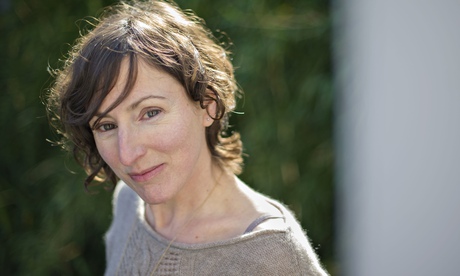
Last year, Nina Stibbe turned up as a surprise hit – rather as she did in the house of Mary-Kay Wilmers, editor of the London Review of Books, for whom she worked in the 80s as a nanny. Her charming memoir, Love, Nina, was based on letters written to her sister during the time she spent at 55 Gloucester Crescent, one of London's most literary addresses, and included her entertaining take on the heavyweights encountered around Wilmers's kitchen table: Alan Bennett, Jonathan Miller, Karel Reisz – not that Nina had heard of any of them. She was an ordinary girl from rural Leicestershire, a feeble cook and patchily educated. But her book hinted at something more: a discernment about good writing and a far from ordinary comic gift.
When Penguin announced they were bringing out Stibbe's semi-autobiographical first novel, which had been languishing with the letters (and was written, years ago, on an autobiography and fiction course), it was hard to believe it would be any good. The decision to publish sounded like doomed opportunism. After all, writing an amusing book garnished with famous names is not equivalent to pulling off a novel about family life set in anonymous Leicestershire. I opened the book, steeling myself for disaster.
I was no more than a couple of pages in when I started to suspect I was about to be proved sensationally wrong. And before the end of the first chapter I'd had a change of heart and dropped all doubts with a clatter. Not for a second after that did I waver or want to do anything other than read on. The extraordinary luck for Stibbe's publisher and readers is that Man at the Helm is a winner – a brilliant find. It even trumps Love, Nina because Stibbe is more at home in it. It is full, free, outlandish. And I can't remember a book that made me laugh more. She doesn't take anything seriously. Or rather, she does, and yet her eye and ear for the absurd never desert her – they are part of who she is.
Stibbe defies gravity but never pretends it doesn't exist. Describing warring parents is a traumatic task. Yet even mid-wrangle there is a breeziness about her approach. This is how she tells it: "It seemed mild enough to begin with and quite playgroundy – until his great white hands circled her neck and one of her shoes came off as it might in a murder or a fairytale." The word "playgroundy" is typical of her fresh, hopeful, plucky style; the coined word is fun. For Stibbe, language – along with everything else – need not be self-important or taken too seriously (elsewhere, she tries out "fieldy" and then goes the whole hog with – wait for it– "schadenfreudy").
The novel is about the daughters' quest to find a man (a "man at the helm") for their mother. There is much talk of "our mother", as if she were the child – which, in a sense, she is. Alone, unhappy, 31, with three kids and a labrador, the mother emerges as feckless, glamorous, literary and unsuited to English village life (Stibbe nails the sneaky censoriousness, the littleness of little England). Her conclusion: "It was no wonder… she became a menace and a drunk and a playwright." A riches-to-rags drama is unfolding. And whenever things go awry, which is most of the time, it is grist to the playwriting mill (the novel is generously sprinkled with dialogue from mother's plays).
The sisters put together a list of potential spouses. Their list is hilarious, desperate, comprehensive. It includes "Mr Longlady – accountant and bee lover", and "Mr Dodd – teacher (avoid if possible)", and "Denis at the garage – too old?". The girls write letters impersonating their mother, in which they invite men to tea, with varied results (there's a shocker of a visit from the vicar and several amorous calls from Mr Dodd). The sisters' view of men is undeceived: "My sister said it wasn't that having a man was good, but that not having one was bad." And the girls are confident planners.
Among their certainties is the belief that men are compulsive snackers: "If there was one thing I knew for definite about men it was that they cannot perform sex if hungry." It's a recurring theme. Of Mr Longlady (whose appetites are otherwise regrettably under control): "like every other man I've ever known, he was a huge fan of omelettes".
The tone at times reminded me of Dodie Smith's I Capture the Castle with its opinionated innocence. There is a lurking wisdom here, too – moments when you recognise the truth in an observation, such as: "busy-body actions are often selfish at heart and mostly don't help the intended recipient". Some of the wisdom is inherited. At one point the mother says one of the worst things in life is trying to get over bad things you have caused yourself. This is followed, without missing a beat, by: "She knew this – most of the bad things in her life having been her own fault." This ought to be devastating, but in the context of this uplifting book the remark manages to be light, unjudgmental – nearly a joke.
Man at the Helm is published by Penguin (£12.99). Click here to buy it for £10.39 with free Uk p&p

